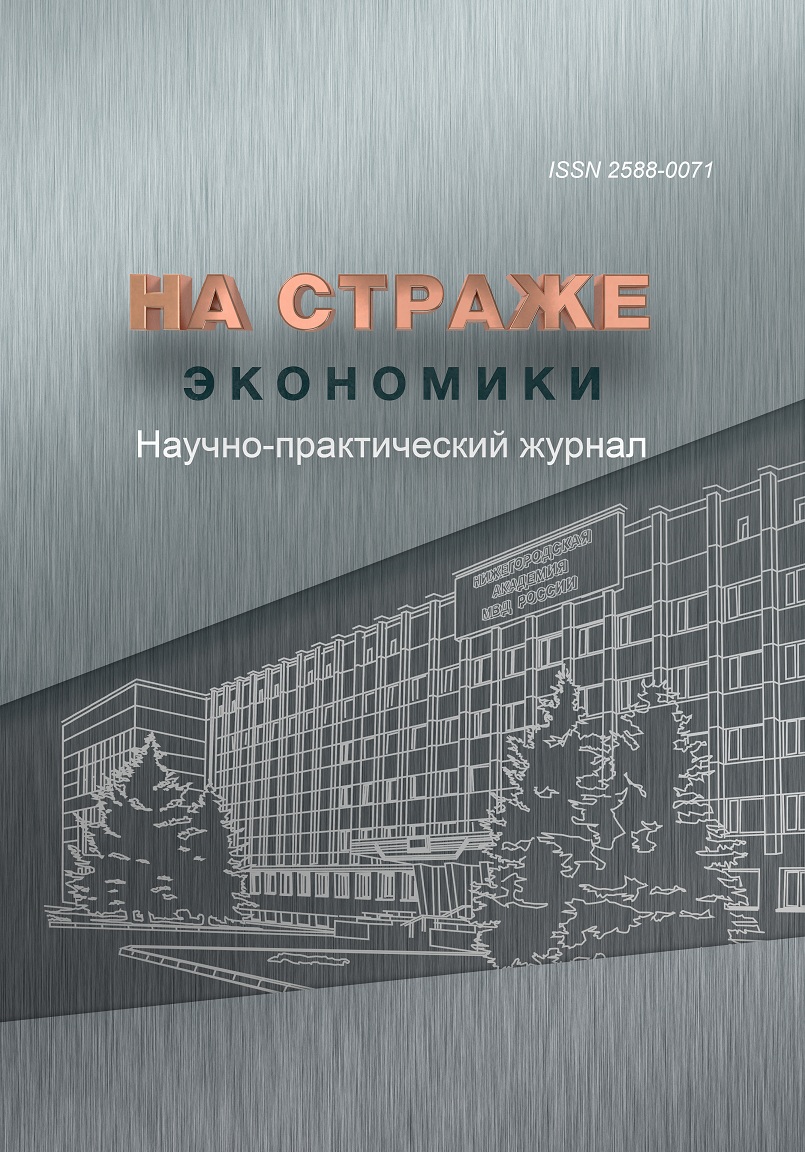from 01.01.2018 until now
Sankt-Peterburg, St. Petersburg, Russian Federation
Russian Federation
The paper considers the structure of non-observed economy in the context of the system of national accounts. The conclusion about the identity of the concepts of non-observed and shadow economy is made and the leading role of crime in the formation of the shadow sector is determined. On the example of St. Petersburg the relationship between the growth of criminalization and the decline in living standards of the population is investigated. Particular attention is paid to economic incentives that determine the behavior of a “rational” individual in the choice of employment and can create obstacles to the achievement of strategic objectives of regional development.
regional economy, strategy, standard of living, unobserved economy, shadow economy, crime, criminalization
1. On the Strategy of socio-economic development of St. Petersburg for the period up to 2035: law of St. Petersburg no. 771-164 of December 19, 2018. URL: https://docs.cntd.ru/document/551979680 (accessed 10.04.2022). (In Russ.)
2. Okrepilov V. V. Experience in creating strategic documents for the development of the economy of St. Petersburg aimed at improving the quality of life. The economy of the North-West: problems and prospects of development, 2021, no. 1 (64), pp. 4-13. (In Russ.)
3. Myachin N. V. The structure of the unobservable economy in the system of national accounts. Economic security: Problems, prospects, development trends: Materials of the VI International Scientific and Practical Conference, Perm, February 19, 2020. Perm: Perm State National Research University, 2020. Pp. 294-298. (In Russ.)
4. System of National Accounts 2008, item 6.39. URL: http://unstats.un.org/unsd/nationalaccount (accessed 10.04.2022). (In Russ.)
5. Kolesnikov V. V. Economic crime and market reforms: political and economic aspects. Monograph. St. Petersburg: SPbUEF Publ., 1994. 173 p. (In Russ.)
6. Bokun N. Ch. Shadow economy: concept, classification, information support. Questions of statistics, 1997, no. 7, pp. 3-10. (In Russ.)
7. Gurov M. P. Shadow economy and economic crimes in modern Russia. Bulletin of the St. Petersburg University of the Ministry of Internal Affairs of Russia, 2006, no. 4, pp. 300-308. (In Russ.)
8. Privalov K. V. Shadow economy: theoretical and legal analysis: textbook. St. Petersburg: Polytechnic University Publ., 2012. 160 p. (In Russ.)
9. Luneev V. V. Crime and the shadow economy. Economic science of modern Russia, 2005, no. 1, pp. 72-82. (In Russ.)
10. Krasilnikov O. Yu. Institutional transformation of the shadow economy. Izvestiya Saratov University. A new series. Economics series. Management. The right, 2016, no. 3 (16), pp. 251-257. (In Russ.)
11. Grachev A. V. Analysis of the scale of the shadow economy of Russia according to domestic and foreign sources. Bulletin of the Kaliningrad branch of the St. Petersburg University of the Ministry of Internal Affairs of Russia, 2021, no. 1 (63), pp. 144-150. (In Russ.)
12. Knorre A., Titaev K. Crime and victimization in Russia. The results of the All-Russian victimization survey. St. Petersburg: Institute of Law Enforcement Problems. 2018. 36 p. (In Russ.)
13. Ivanov P. I., Shegabudinov R. S. Economic and corruption crime and its latency as an object of criminological study. Bulletin of Economic Security, 2017, no. 3, pp. 111-120. (In Russ.)
14. The state of crime. URL: https://mvd.rf/folder/101762 (accessed 08.05.2022). (In Russ.)
15. Latov Yu. V. Economics outside the law: Essays on the theory and history of the shadow economy. Moscow: Moscow Public Scientific Foundation, 2001. 284 p. (In Russ.)
16. The standard of living of the population of St. Petersburg in 2020. Analytical reference Committee on Informatization and Communications. URL: https://www.gov.spb.ru/static/writable/documents/2020/12/29/AC_2020_.pdf (accessed 16.05.2022). (In Russ.)











